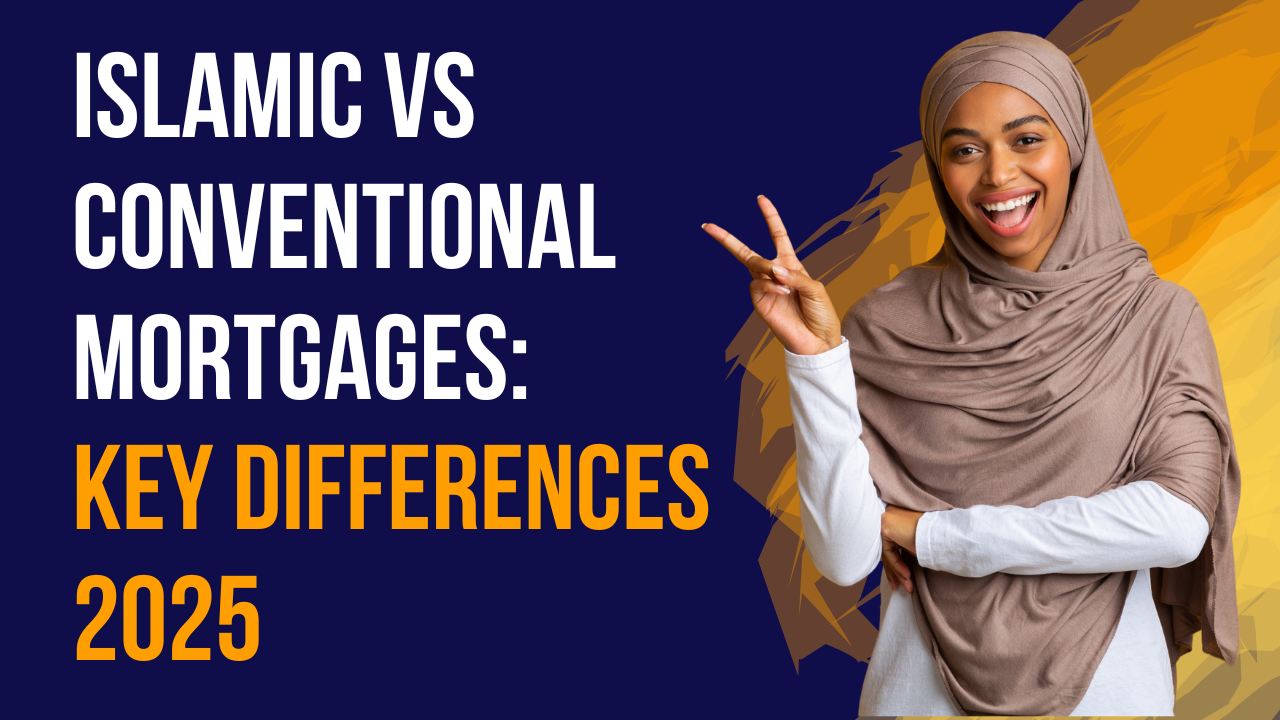Use the quick and simple quotation system to get a mortgage quote in seconds.

9th July 2025
With the growing demand for ethical and faith-based financial solutions, many homebuyers in the UK are exploring the differences between Islamic and conventional mortgages. For those seeking a Sharia-compliant loan, understanding the key distinctions is essential for making an informed decision. While both options aim to help individuals own property, they operate on fundamentally different financial principles. This guide compares Sharia mortgage vs conventional mortgages in 2025, examining structure, cost implications, and religious considerations.
find me a mortgageAt the heart of the Islamic mortgage model is the prohibition of interest (riba), which is considered haram (forbidden) under Islamic law. Conventional mortgages, on the other hand, are built on interest payments. In contrast, Islamic mortgages involve alternative structures such as Ijara (leasing), Murabaha (cost-plus financing), or Diminishing Musharaka (partnership). These models ensure the transaction remains halal by avoiding interest and promoting profit-and-risk sharing instead.
In a conventional mortgage, the buyer owns the property from the outset and repays the lender with interest over time. In a Sharia-compliant loan, the bank either buys the property and leases it to the buyer or enters a joint partnership where ownership gradually transfers to the buyer. For instance, under the Diminishing Musharaka model, the buyer purchases equity in the property over time while paying rent on the bank's share.
Islamic mortgages may appear more expensive upfront due to additional administrative or legal fees. However, they provide ethical reassurance for Muslim buyers. Additionally, since Islamic banks operate differently in terms of risk and return, product flexibility and early repayment options can vary significantly compared to conventional products. Some Islamic home loans offer fixed rent payments, while others adjust according to market conditions.
What is the main difference between a Sharia and a conventional mortgage?
Sharia mortgages avoid interest and use alternative structures like leasing or partnerships, while conventional ones rely on interest-based lending.
Are Islamic mortgages more expensive?
They can be initially due to legal structuring, but the ethical benefits and shared-risk model offer long-term value.
Is a halal mortgage suitable for non-Muslims?
Yes, some non-Muslim buyers prefer Islamic mortgages for their ethical framework.
Can I repay an Islamic mortgage early?
This depends on the provider and the mortgage model—some allow early repayment without penalties.
Is an Islamic mortgage regulated in the UK?
Yes, many Islamic mortgage providers are regulated by the FCA, offering the same protections as conventional lenders.
We're happy to assist you on both Islamic and conventional mortgages. As an FCA-regulated brokerage, we support our clients with transparent, ethical guidance and a broad range of mortgage options—without charging any fees for our services.
Your home may be repossessed if you do not keep up repayments on your mortgage.
Contact UsUse the quick and simple quotation system to get a mortgage quote in seconds.
SHARE WEBPAGE